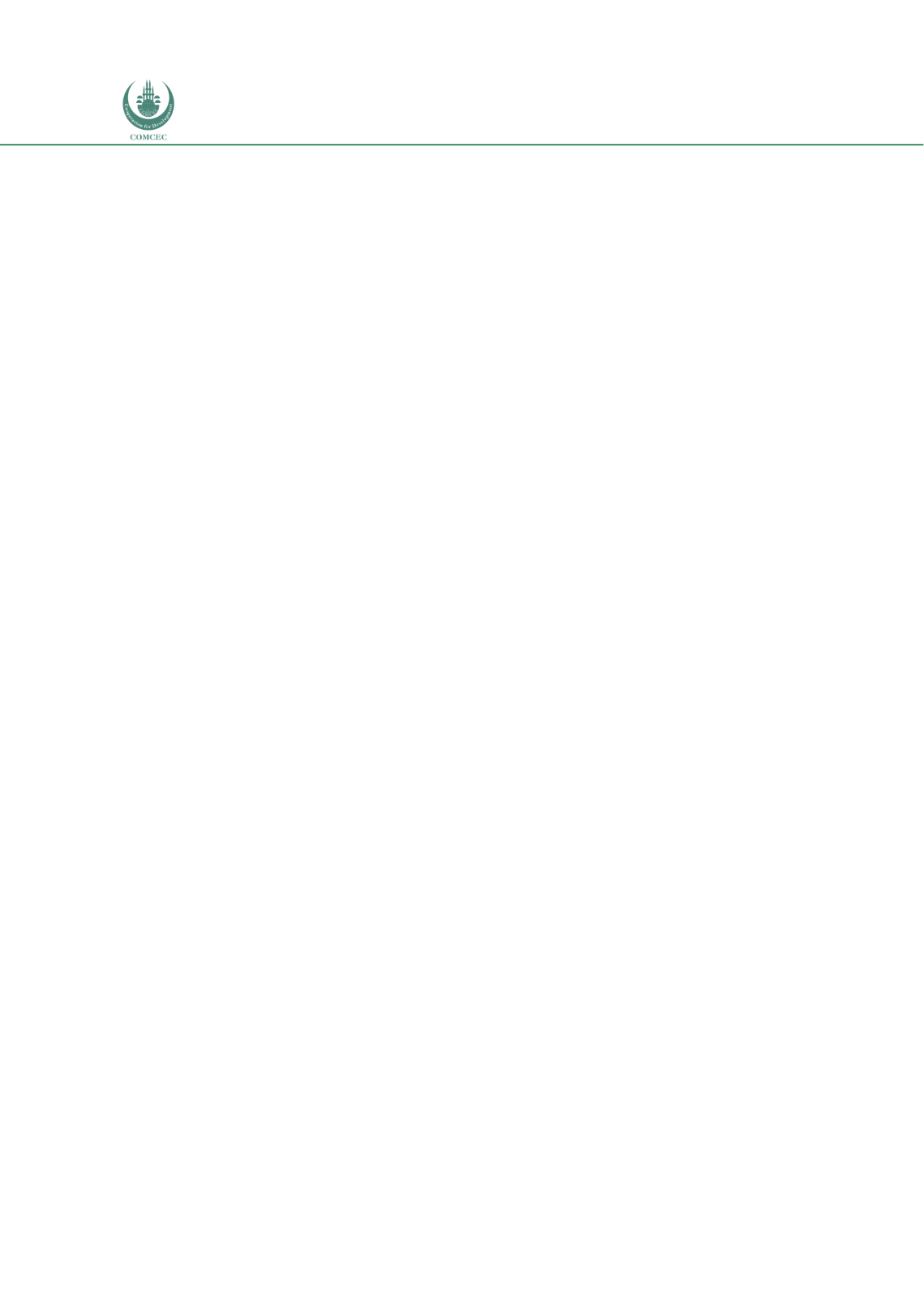

Infrastructure Financing through Islamic
Finance in the Islamic Countries
184
Even in countries where Islamic banking is relatively well-developed, its contribution to
infrastructure projects has been limited. For example, the average direct investment in
infrastructure sectors in Sudan is 3.59% and in Saudi Arabia it is 3.74%. This implies that
Islamic banks are not likely to increase their direct investments in infrastructure due to
regulatory reasons and short-term liquid liability structures. Although some larger Islamic
banks have invested in infrastructure projects by financing tranches in syndicated structures
with other Islamic and conventional banks, increasing their contribution to the infrastructure
sector lies in investing in liquid tradable project sukuks. Investments in liquid tradable sukuk
suits the balance sheet structure of Islamic banks better as reflected by the average investment
in sukuk of 8.9% for sample OIC countries included in this study, which is double that of the
average of direct infrastructure investments of 4.02%.
The balance sheet structures of Islamic nonbank financial institutions are better suited for
investments in infrastructure projects compared to Islamic banks. However, in most countries,
the Islamic nonbank financial institutions are relatively small and, as such, do not contribute
much to the development of the infrastructure sector. Thus, there is a need to diversify Islamic
finance to other organizational formats such as takaful, pension funds and infrastructure
funds. These institutions are likely to invest in the infrastructure sector either in the form of
equity or sukuk certificates.
The above discussions indicate that the development of the Islamic capital markets holds the
key to the mobilization of Shariah-compliant funds for infrastructure investments. This can be
done even if the Islamic banking sector is relatively small. The cases of Indonesia and Nigeria
show that Islamic capital markets can be used to tap into resources to raise funds for the
infrastructure sector, even though the share of the Islamic banking sector is small. Since
Islamic banks are more likely to invest in project sukuk than directly invest in large projects,
issuing sukuk would also increase the contribution of Islamic banks in infrastructure
development. Furthermore, there is a need to increase the share of Shariah-compliant nonbank
financial institutions such as family takaful, pension funds and specialized infrastructure funds.
















